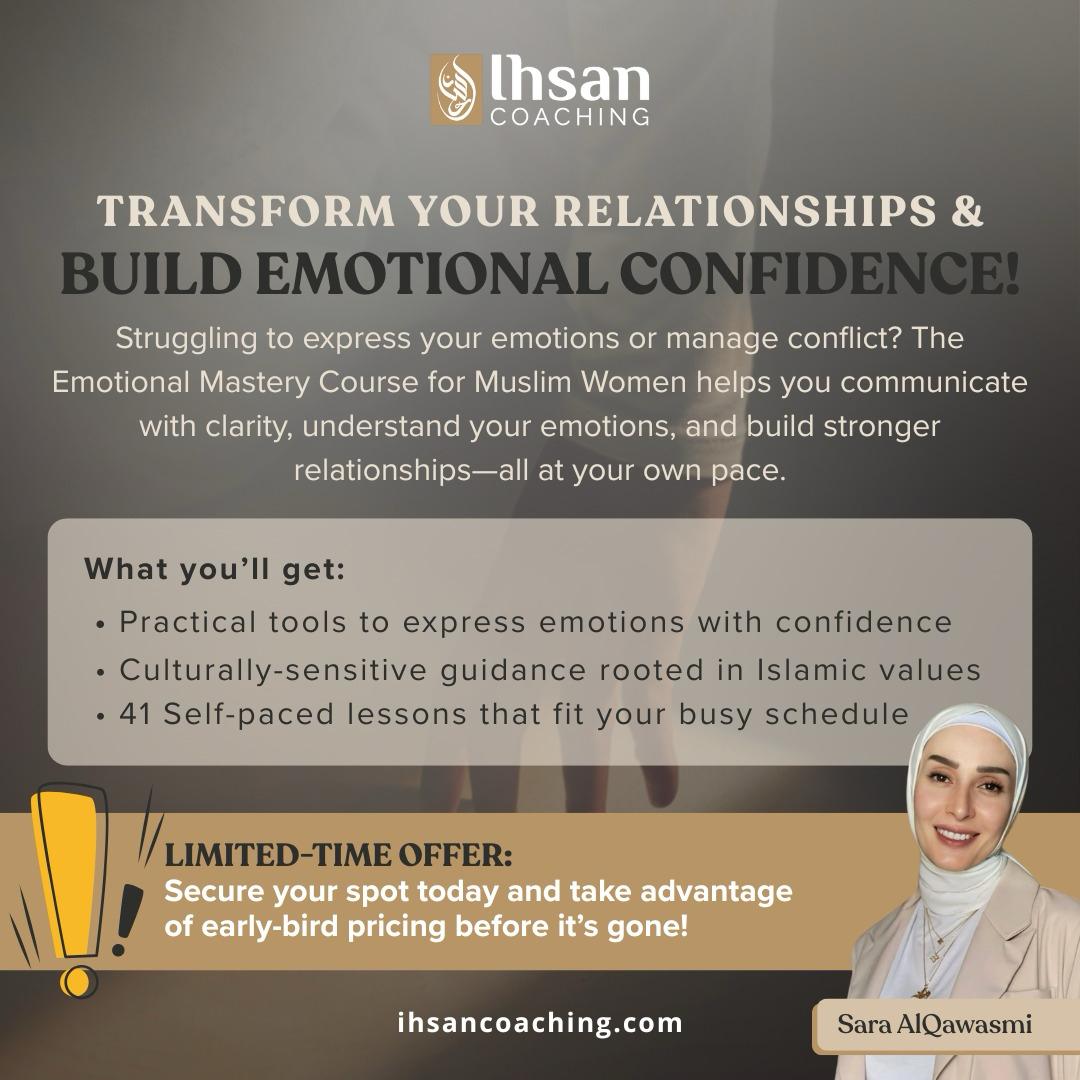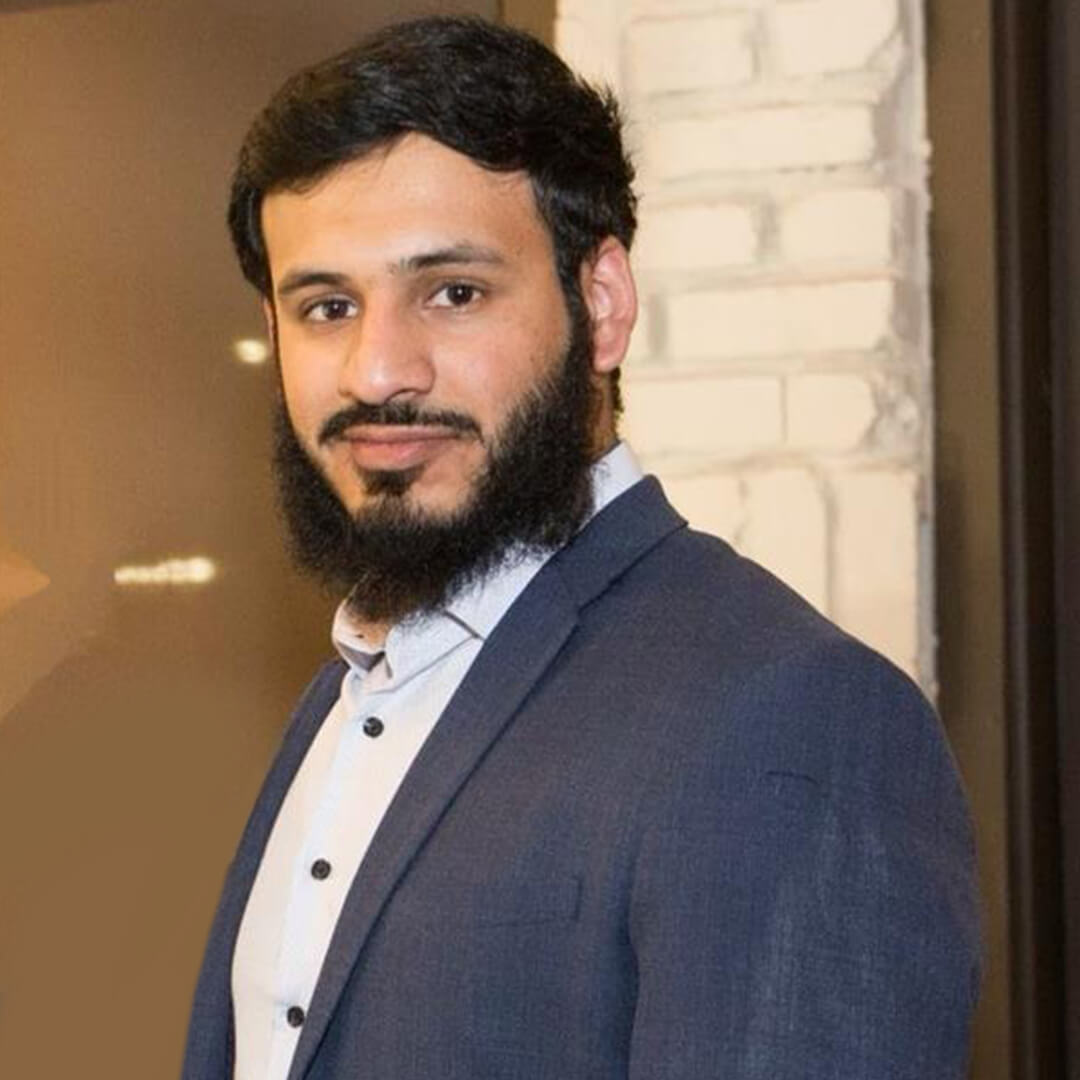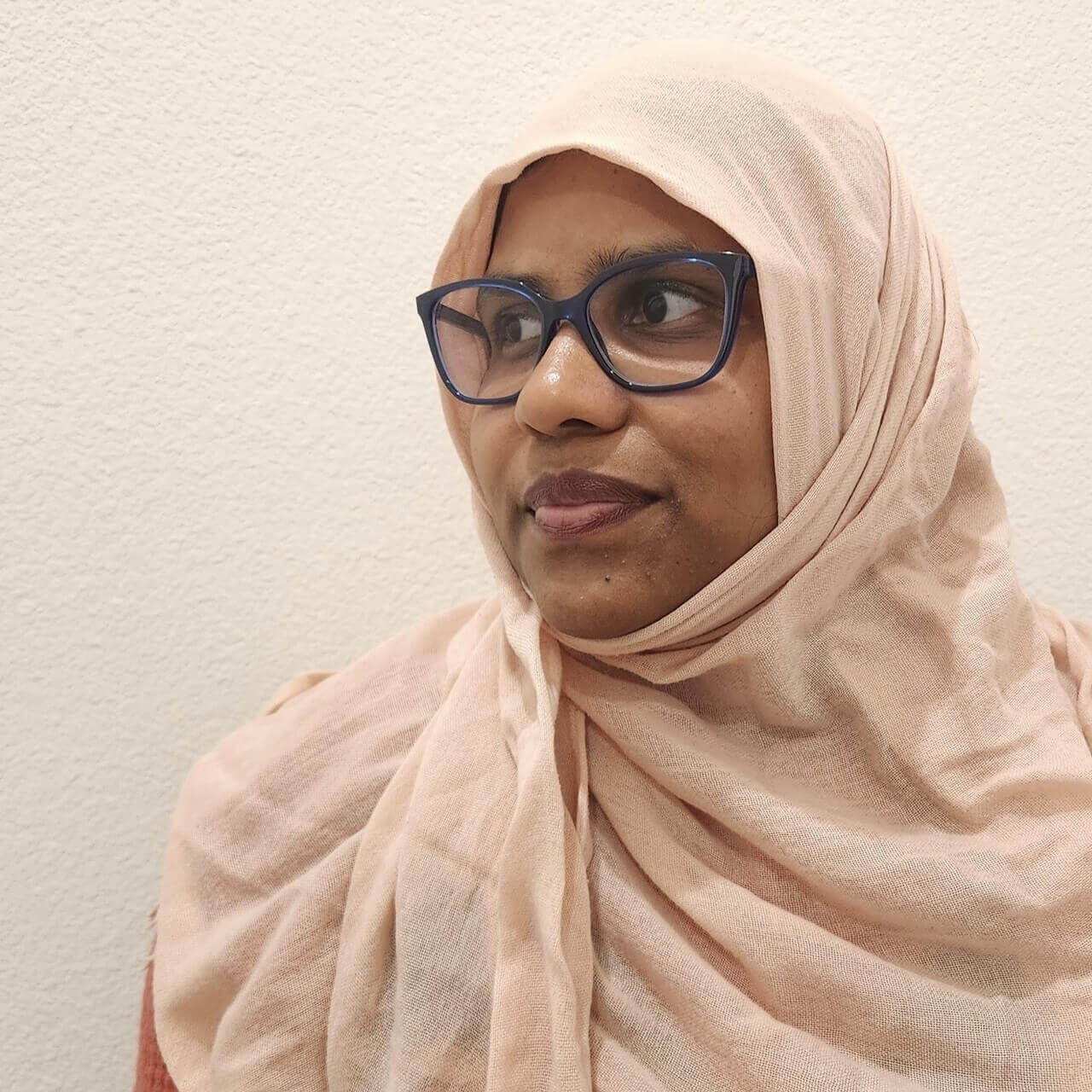Divorce is often described as one of life’s most painful and challenging experiences, akin to mourning the death of a loved one. It disrupts your daily routine and your emotional and spiritual well-being. Surprisingly, statistics show that the divorce rate in many Muslim-majority countries is rising, pointing to a growing need for guidance and support in overcoming this trauma. The good news is that Islamic teachings offer a comprehensive framework for healing. Below are ten powerful, sequential practices grounded in Islamic principles that can help you navigate and overcome the trauma of divorce.
1. Seeking Refuge in Allah (SWT)
Islam teaches that Allah (SWT) is the ultimate source of comfort and support. When facing divorce, the first step is to turn to Him. Recite the following dua: “Hasbiyallahu la ilaha illa Huwa” (Allah is sufficient for me; there is no deity except Him). This invocation helps strengthen your faith and reminds you that Allah (SWT) is always there to support you.
2. Understanding Qadr (Divine Decree)
One of Islam’s core beliefs is Qadr, the understanding that everything happens by the will of Allah (SWT). Accepting your divorce as part of Allah’s plan can be incredibly liberating. It helps shift the focus from self-blame and regret to a broader perspective of growth and future possibilities. Remember, Allah’s plans are always in your best interest, even if painful.
3. Establishing Regular Salah (Prayer)
Prayer is the cornerstone of a Muslim’s life. Regularly performing Salah can provide a sense of structure and normalcy, acting as a spiritual anchor in times of turmoil. Engage deeply in your prayers, especially in the quiet moments of Sujood (prostration), where you are closest to Allah (SWT). This act of worship not only calms the mind but also revitalizes the spirit.
4. Reciting and Reflecting on the Quran
The Quran is not just a book of guidance but also a source of healing. Recite Surah Al-Baqarah, as it is known for its protective and healing properties. Reflect on verses about patience, perseverance, and reliance on Allah (SWT). This practice can be soothing and enlightening, offering insights into your current struggles and providing a roadmap for the future.
What the Quran says about having hardships in life and how tolerance can help
- Surah Al-Baqarah 2:286: “Allah does not burden a soul beyond that it can bear…”
- Surah Ash-Sharh 94:5-6 “For indeed, with hardship [will be] ease. Indeed, with hardship [will be] ease.”
- Surah Al-Isra 17:82: “And We send down of the Quran that which is healing and mercy for the believers…”
Verses on Tolerance
1. Surah Al-Hujurat 49:10
Translation: “The believers are but brothers, so make settlement between your brothers. And fear Allah that you may receive mercy.”
2. Surah Al-Imran 3:134
“Who spend [in the cause of Allah] during ease and hardship and who restrain anger and who pardon the people – and Allah loves the doers of good.”
Incorporating these verses into your daily life by reciting and reflecting on them can provide solace and guidance to deal with Divorce Trauma, helping you cultivate a resilient and tolerant mindset.
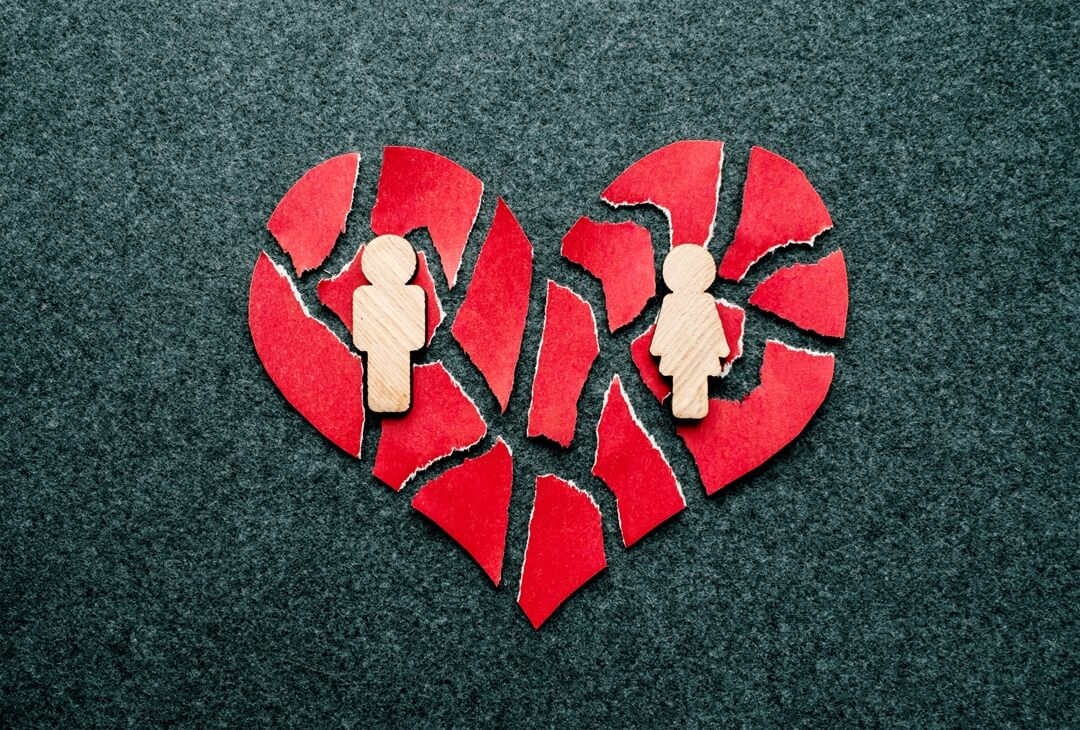
3. Engaging in Dhikr (Remembrance of Allah)
Dhikr involves the continuous remembrance of Allah (SWT) through specific phrases and supplications. Regularly reciting phrases like “SubhanAllah,” “Alhamdulillah,” and “Allahu Akbar” can bring peace to your heart and mind. Dhikr helps maintain a constant connection with Allah (SWT), ensuring you are never alone in your struggle.
4. Practicing Sabr (Patience)
Patience is a virtue highly emphasized in Islam. Embrace Sabr as you navigate the emotional rollercoaster of divorce. Understand that healing is a gradual process, and Allah (SWT) rewards those who endure hardships with patience. Surround yourself with supportive friends and family and avoid making hasty decisions in emotional distress.
5. Knowledge and Counseling
Knowing Islamic perspectives on marriage, divorce, and healing can be incredibly empowering. Seek out Islamic scholars, counselors, or trusted community leaders who can provide guidance based on the Quran and Hadith. At Ihsan Coaching, we offer specialized services to help individuals heal and grow through these challenges, integrating Islamic teachings with modern psychological practices.
6. Engaging in Acts of Charity
Engaging in Sadaqah (charitable giving) is a means of purification and gaining inner peace. Helping others in need can provide a sense of purpose and satisfaction, diverting your focus from personal pain. Prophet Muhammad (PBUH) said, “Charity does not decrease wealth,” indicating that giving to others will bring blessings into your life.
6. Building a Supportive Community
Isolation can exacerbate the feelings of loneliness and sadness that often accompany divorce. Actively participate in community activities and build a network of supportive friends who share your values and faith. A strong support system can offer emotional solace, practical advice, and a sense of belonging, all crucial for recovery.
7. Setting New Goals and Aspirations
Divorce marks the end of one chapter but also opens the door to new beginnings. Take time to reflect on your personal goals and aspirations. Whether pursuing further education, developing a new skill, or dedicating more time to your hobbies, setting and achieving new goals can instill a sense of purpose and direction in your life.
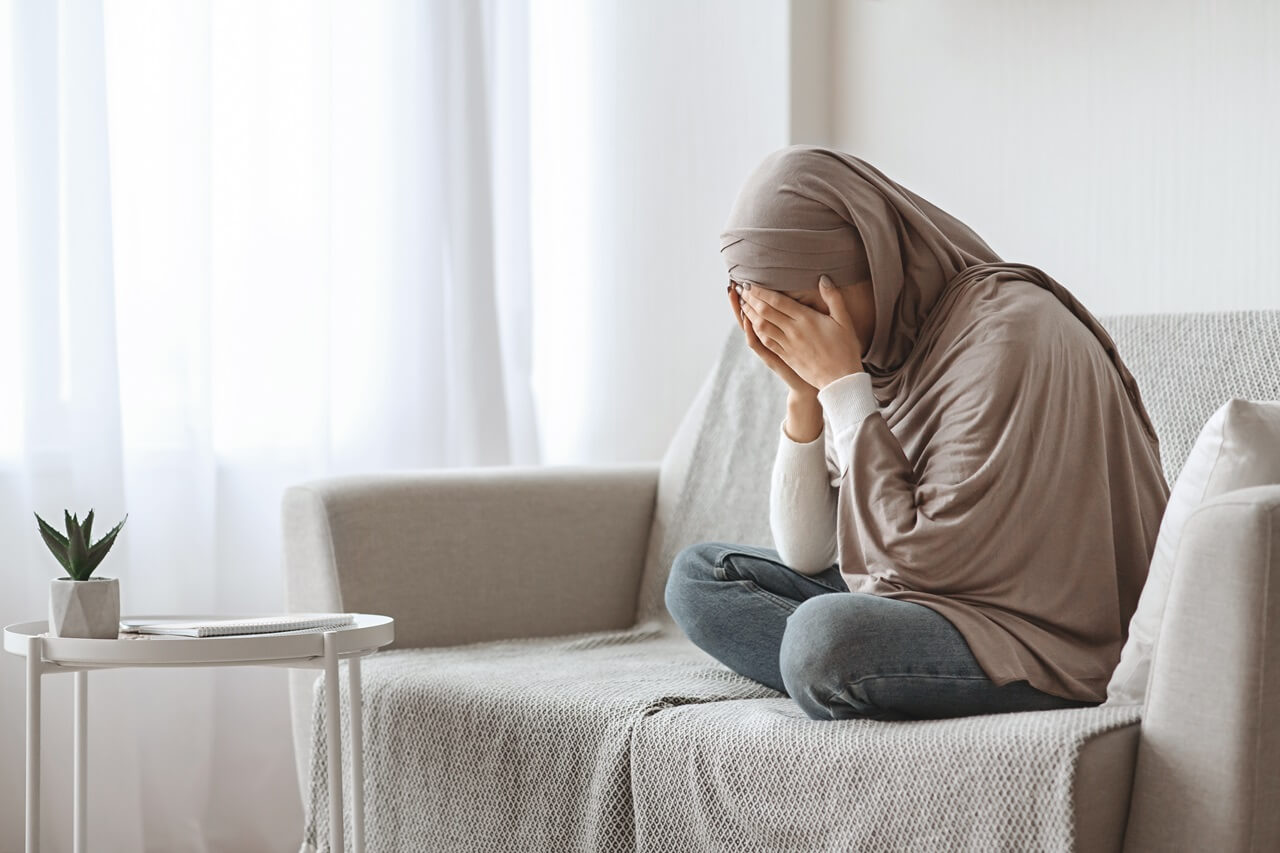
FAQs about Dealing with The Trauma of Divorce
How long does it take to heal from divorce?
Healing from divorce is a deeply personal journey and varies significantly from person to person. Some may start to feel better in a few months, while others might take years. It’s essential to be patient with yourself and seek support when needed.
Can Islamic counseling help in overcoming divorce trauma?
Islamic counseling can be incredibly effective as it combines spiritual guidance with psychological support. It helps address the emotional and spiritual aspects of divorce, providing a holistic approach to healing.
What should I do if I feel overwhelmed by loneliness?
Engage in community activities, seek out supportive friends and family, and turn to Allah (SWT) through prayer and Dhikr. Loneliness can be challenging, but building a network of supportive individuals can make a significant difference.
How can I ensure my children cope well with the divorce?
Ensure open communication with your children and provide them with emotional support. It’s also beneficial to involve them in counseling sessions and maintain a stable and loving environment.
What role does forgiveness play in healing from divorce?
Forgiveness is crucial in letting go of past hurts and moving forward. It doesn’t mean condoning harmful behavior but rather freeing yourself from the burden of resentment and anger. Islam encourages forgiveness as a means of attaining inner peace.
Get Professional Help from Muslim Coaches
If you’re struggling with the trauma of divorce, know that you’re not alone. Ihsan Coaching offers compassionate, faith-based counseling services and religious consultation. Our experts blend Islamic teachings with modern psychological practices to help you heal and thrive. Reach out today and deal with Divorce trauma while taking the first step towards a brighter, more fulfilling future.

